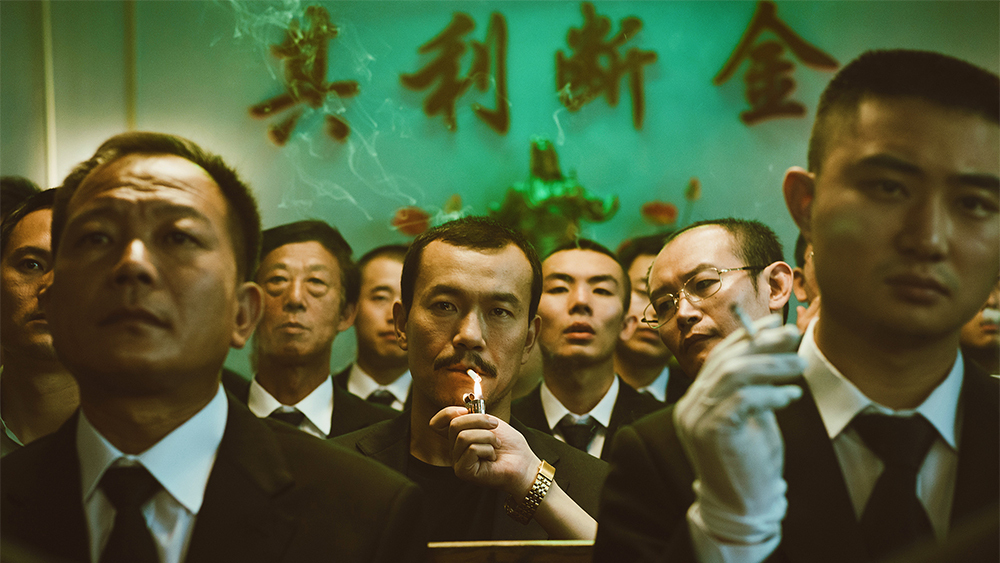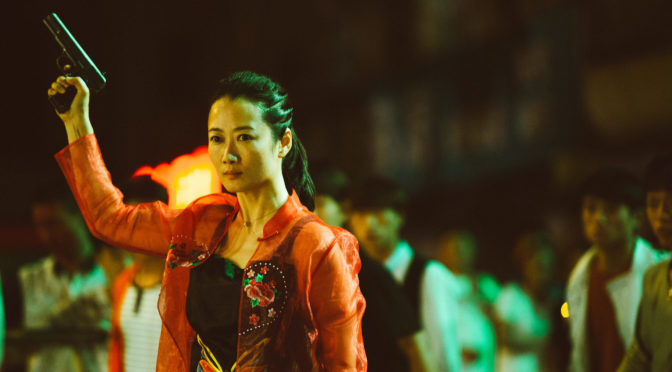Jia Zhangke (A Touch of Sin) has made a name for himself telling stories of regular people as they struggle to survive in the midst of the social and economic upheaval occurring in China. His newest film stars his wife and frequent collaborator Zhao Tao (Mountains May Depart) as Zhao Qiao, the girlfriend of a mobster named Guo Bin (Fan Liao). After a repercussion of his criminal lifestyle, Qiao goes to prison and finds herself alone at her eventual release. She searches for her former lover as she tries to reclaim her lost time and identity, but learns the outside world has changed since she left it.
Jia finds beauty in the within the meager environments. Many of the households seen in the film are cramped, drab dwellings, but even as the spaces are unremarkable, Jia uses striking compositions to bring life to the settings. Whether it’s Qiao’s positioning or using reflections off a streaky mirror, the craftsmanship overrides the bleak interiors. In exterior scenes, Jia takes advantage of the eerie cities. He frames outdoor scenes with an emphasis on scale and emptiness. In some parts of China, rapid real estate development has led to “ghost cities” where the supply of new housing far outran the demand. Qiao is engulfed by this sprawling housing and infrastructure as she travels. Even when there are others nearby, her framing highlights her loneliness and disconnection from a world that is rapidly changing and leaving parts of itself behind.

The film’s narrative has three acts, only two of which are successful. The early scenes of Qiao’s life as the girlfriend of a powerful gangster set up the frivolity of her existence and serve as contrast to the austerity of her life post-prison as she attempts to reconnect with Bin. This transformation and the conclusion of her search form a satisfying arc for her character. Then the film continues. The third act, which begins almost two hours into the film, makes leaps in logic and in time as it races towards the ending that seems to be Jia’s true target. Over a single cut, time skips forward and the lives of characters have drastically changed with little indication of how. For a filmmaker that typically basks in the small details of life, allowing narratives to unfold at an unhurried tempo, the rushed pacing is unexpected and leaves gaps in character development that harm the final scenes. Lacking the gradual buildup Jia has spent the first two hours establishing, the film’s conclusion fails to produce the intended emotional response and closes on unsatisfying note. Jia has created an observant look at a character’s growth in a changing world, but appended an unnecessary and rushed epilogue harmful to the film’s deliberate style.

3/5 stars.
